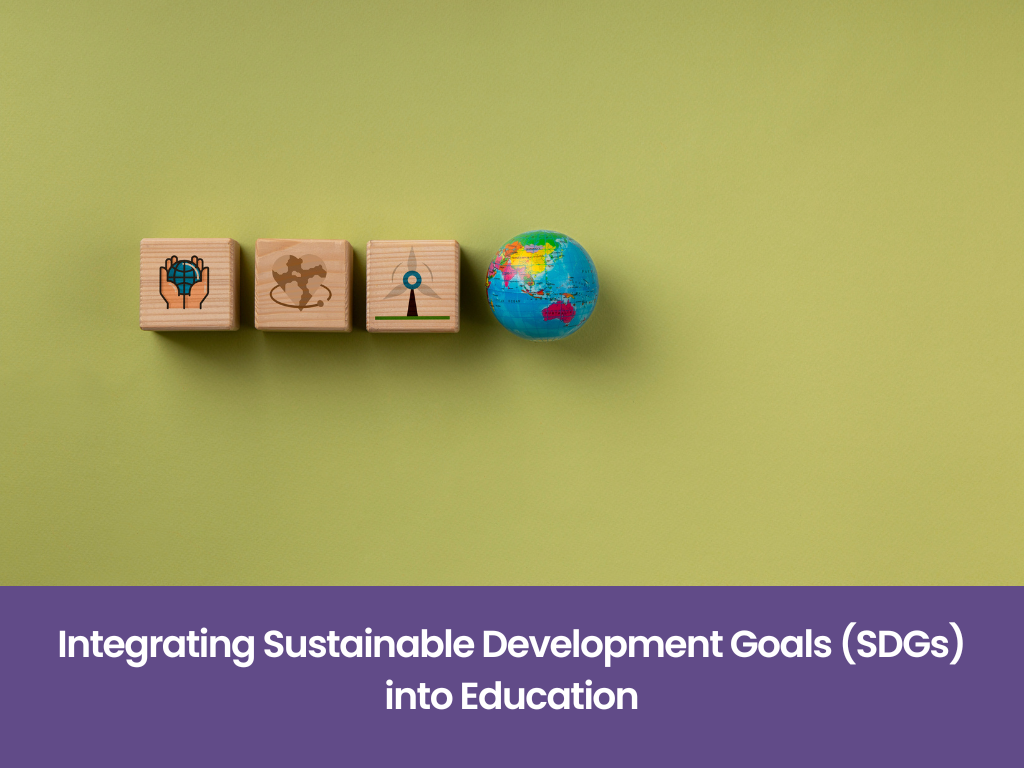Integrating Sustainable Development Goals (SDGs) into Education
posted on Mar 04, 2024
In the face of global challenges such as climate change, poverty, inequality, and environmental degradation, the United Nations Sustainable Development Goals (SDGs) provide a roadmap for a more sustainable and equitable future.

Introduction
In the face of global challenges such as climate change, poverty, inequality, and environmental degradation, the United Nations Sustainable Development Goals (SDGs) provide a roadmap for a more sustainable and equitable future. Education plays a crucial role in achieving these goals by equipping students with the knowledge, skills, and values necessary to address complex social, economic, and environmental issues. BGS Vijnatham School, recognized as one of the best school in Noida Extension, is committed to integrating the SDGs into its curriculum and fostering a culture of sustainability among students. This article explores the school's approach to incorporating the SDGs into education and empowering students to become agents of positive change in their communities and beyond.
Understanding the Sustainable Development Goals (SDGs)
The Sustainable Development Goals (SDGs) are a set of 17 interconnected goals adopted by the United Nations in 2015 to address global challenges and promote sustainable development. These goals encompass a wide range of issues, including poverty eradication, zero hunger, quality education, gender equality, clean water and sanitation, affordable and clean energy, sustainable cities and communities, climate action, and life below water and on land, among others.
Key principles of the SDGs include:
- Universality: The SDGs apply to all countries and aim to leave no one behind, recognizing the interconnectedness of global challenges and the need for collective action.
- Integration: The SDGs are interconnected and mutually reinforcing, highlighting the importance of addressing social, economic, and environmental dimensions of sustainability in an integrated manner.
- Equity and Inclusion: The SDGs prioritize the needs of the most vulnerable and marginalized populations, including women, children, persons with disabilities, and indigenous communities, to ensure equitable access to opportunities and resources.
- Partnership and Collaboration: Achieving the SDGs requires collaboration and partnerships among governments, civil society, businesses, academia, and individuals at the local, national, and global levels.
Integrating SDGs into Education at BGS Vijnatham School
School has embraced the SDGs as a guiding framework for its educational programs and initiatives. Here are some of the key approaches the school has adopted to integrate the SDGs into education:
- Curriculum Alignment: The school aligns its curriculum with the SDGs, integrating concepts, themes, and learning outcomes related to sustainability across subjects and grade levels. Teachers incorporate SDG-related topics into lesson plans, projects, and assignments, providing students with opportunities to explore real-world issues and solutions.
- Project-Based Learning: School emphasizes project-based learning approaches that encourage students to investigate, analyze, and address local and global challenges aligned with the SDGs. Students engage in hands-on projects, research initiatives, and community-based activities that promote critical thinking, problem-solving, and collaboration skills while making meaningful contributions to sustainable development.
- Experiential Learning: The school offers experiential learning opportunities, such as field trips, outdoor education programs, and sustainability workshops, that connect students with the natural environment and raise awareness about environmental conservation, biodiversity, and ecosystem health. These experiences foster a sense of stewardship and responsibility towards the planet and its inhabitants.
- Student Leadership and Engagement: School empowers students to take on leadership roles and initiatives related to sustainable development. Student-led clubs, committees, and projects focus on raising awareness, advocating for change, and implementing solutions to address specific SDGs within the school and wider community.
- Community Partnerships: The school collaborates with local organizations, NGOs, and government agencies working on sustainable development issues to provide students with opportunities for community service, internships, and experiential learning. These partnerships facilitate knowledge sharing, mentorship, and collective action towards achieving the SDGs.
- Environmental Stewardship: It promotes environmental stewardship through sustainable practices and initiatives within the school campus. This includes waste management and recycling programs, water conservation measures, energy efficiency initiatives, and green infrastructure projects that demonstrate sustainable living practices and reduce the school's ecological footprint.
- Global Citizenship Education: The school emphasizes the importance of global citizenship education, fostering students' understanding of their roles and responsibilities as global citizens committed to promoting peace, justice, and sustainability. Students learn about global issues, cultural diversity, human rights, and social justice, developing empathy, tolerance, and intercultural competence.
Impact and Future Directions
The integration of the SDGs into education at the School has had a positive impact on students' knowledge, attitudes, and behaviors towards sustainability. Students develop a deeper understanding of global challenges and their interconnectedness, along with a sense of agency and responsibility to contribute to positive change. Looking ahead, the school aims to further strengthen its efforts to integrate the SDGs into education by expanding partnerships, enhancing experiential learning opportunities, and fostering a culture of innovation and collaboration towards sustainable development.
Conclusion
BGS Vijnatham, recognised as the best school in Greater Noida is at the forefront of integrating the Sustainable Development Goals (SDGs) into education, empowering students to become active agents of change and advocates for sustainable development. Through curriculum alignment, project-based learning, experiential education, student leadership, community partnerships, environmental stewardship, and global citizenship education, the school equips students with the knowledge, skills, and values necessary to address pressing global challenges and create a more sustainable and equitable world. By embracing the SDGs as a guiding framework for education, its students are contributing to a brighter future for all.